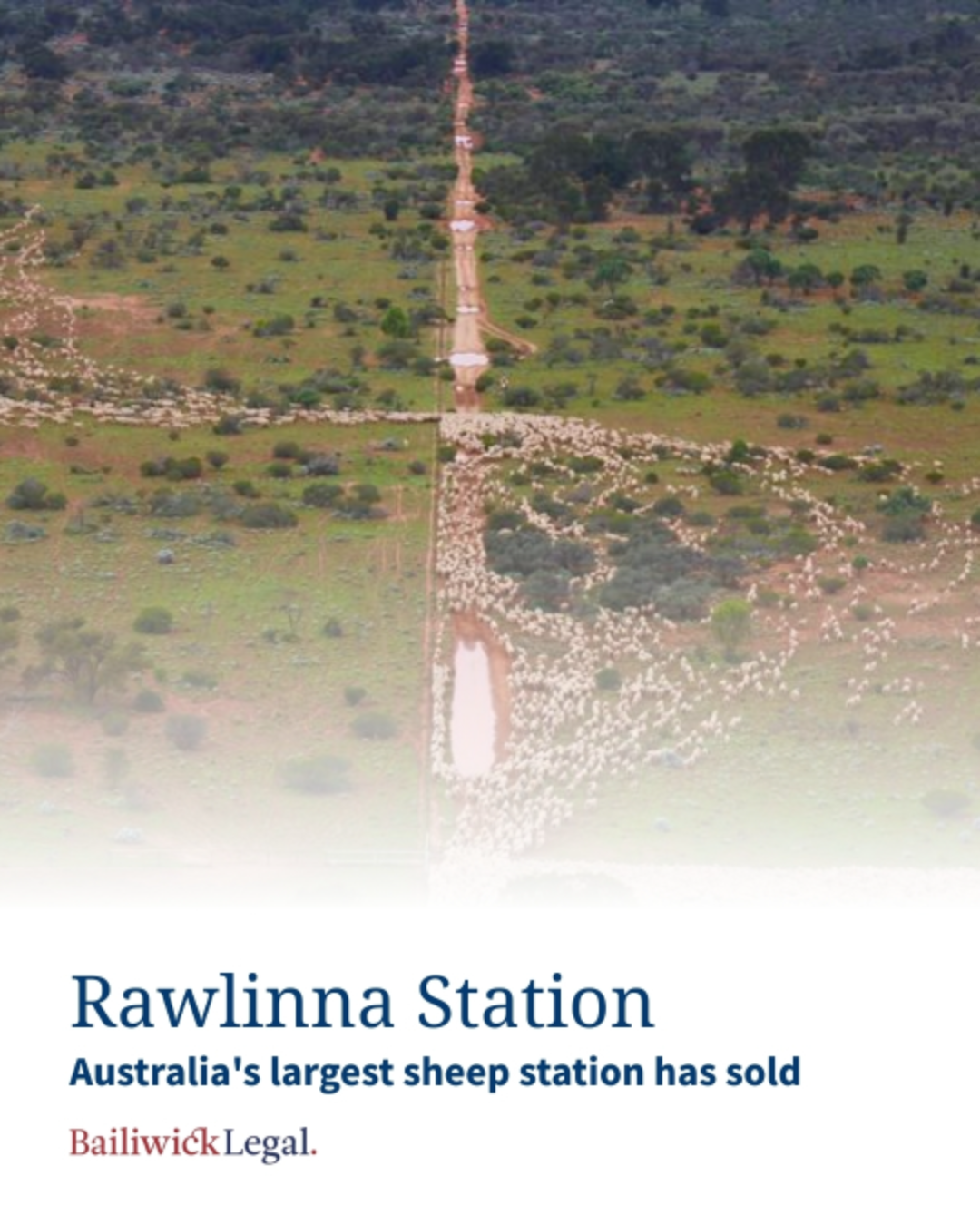Aboriginal Cultural Heritage Bill 2021- implications for farmers
February 19, 2026
A year after the destruction of Juukan Gorge, the McGowan Government has introduced a new Aboriginal Cultural Heritage Bill to the State’s current Aboriginal Heritage Act 1972. The Bill makes extensive amendments to Act to improve the recognition and protection of Aboriginal cultural heritage in WA. However, the introduction of a four tier assessment process for the approval of activities on freehold and Crown land has raised concerns from many farmers and landholders across the State.
Landholders
Under the Bill a landholder is defined very broadly to include:
- a person or body that owns, leases or manages Crown land;
- a person that is the proprietor of an estate in fee simple in land; or
- a person who is the holder of the freehold in land.
Rights of Aboriginal people in relation to Aboriginal Cultural Heritage
Under the Bill Aboriginal people are granted certain rights in respect of Aboriginal cultural heritage, which is now defined to include an Aboriginal place, an Aboriginal object, a cultural landscape and Aboriginal ancestral remains.
An Aboriginal person, group or community that has traditional rights, interests and responsibilities in respect of a secret or sacred object or an area in which Aboriginal ancestral remains are located, or are reasonably believed to have originated from, is a custodian and entitled to possession and control of the object or ancestral remains. However, in order for an Aboriginal cultural heritage to be recognised and protected from activities that may cause harm to it, a protected area order is required.
Protected Area Order
Under part 4 a protected area application to the Aboriginal Cultural Heritage Council (ACH Council) can only be made by a local knowledge holder, which is an Aboriginal person who in accordance with Aboriginal tradition, holds particular knowledge about Aboriginal cultural heritage of the area.
Once a protected area application is made, the ACH Council must notify each local ACH service, native title party and knowledge holder for the application area. If the ACH Council forms a preliminary view that an area be declared as a protected area, the Council must then give public notice about the area and notify each landholder for the area or a part of the area and any other person the Council considers has an interest in the area. Each party who is notified can then make submissions to the ACH Council about the application area.
The ACH Council may then make recommendations to the Minister for Aboriginal Affairs as to whether the application area should be declared as a protected area and whether it should be subject to any conditions such as management or access to the area. The Minister has the authority to declare an application area as a protected area and issue a protected area order. The Registrar of Titles must also be notified of the protected area order. The Registrar has the discretion to make an endorsement or notation on the certificate of title of the land affected. Once an order is issued it must be complied with.
Activities that Require a Due Diligence Assessment
The four-tier approval process is only applicable to proponents, who are persons intending to carry out activities that may harm Aboriginal cultural heritage. There are four types of activities, however only the proponents of tier two and tier three activities which involve low or moderate to high levels of ground disturbance will be required to undertake a due diligence assessment. Similarly, if the proposed activity is intended to be carried out in an area that is part of a protected area or is an area where Aboriginal cultural heritage is known to be located or there is a risk of harm to Aboriginal cultural heritage by the proposed activity, then the proponent of that activity will be required to undertake a due diligence assessment.
A due diligence assessment involves:
- the proponent notifying each ACH local service for the area, or alternatively each native title holder or knowledge holder for the area, of the proposed activity;
- if the activity is a tier 2 or 3 then the proponent must give each of the persons notified about the activity the opportunity to submit a statement about the person’s views about the risk of harm being caused to Aboriginal cultural harm from the proposed activity; and;
- then an application to the ACH Council to gain an ACH permit to carry out a tier 2 activity.
The application to the ACH Council must outline the details of the proposed activity, the characteristics of Aboriginal cultural heritage of which the proponent is aware of and any risk of harm to Aboriginal cultural heritage identified in the due diligence assessment. The ACH Council can either grant an ACH permit for the proposed activity or refuse to issue a permit. If refused, the proponent can object in writing to the Minister who can either confirm the decision of the ACH Council or make another decision.
For a tier 3 activity, a proponent is required to have an approved or authorised ACH management plan with interested Aboriginal parties, including local ACH services and native title parties in the area, and consult with those parties before the commencement of a tier 3 activity. Aboriginal parties are required to give informed consent to an ACH management plan before a plan can be approved by the ACH Council or authorised by the Minister. Once approved or authorised, a proponent can carry out their proposed activities in accordance with their ACH management plan. However, if new information about Aboriginal cultural heritage emerges in relation to an area to which an ACH permit or approved or authorised ACH management plan relates, then the Minister has the discretion to issue a stop activity order, prohibition order and remediation order to prevent harm to Aboriginal cultural heritage.
Implications for Landholders
If no protected area order has been declared over an area of land and there is no knowledge of Aboriginal cultural heritage in the area then a landholder is free to carry out activities on their land without having to comply with the provisions of the proposed Bill.
Compliance Measures
The main concern about the Bill is the compliance measures that have been introduced. Under part 10, Aboriginal and non-Aboriginal inspectors are given broad powers to enter Aboriginal places, obtain information and conduct inspections for the purpose of ascertaining whether the Act or any instrument has been contravened. As part of their powers, inspectors will have the power to enter places, take samples or specimens, survey and mark out land, and make reasonable use of any equipment, facilities or services on or in a place or vehicle in order to carry out an inspection.
It is unclear, how often inspectors will be used to carry out inspections as the purpose for inspections in s 230 is worded very broadly, but it appears that Aboriginal and non-Aboriginal inspectors will be given much broader powers of inspection, entry and seizure than what is in the current Act.
By Matilda Lloyd (Paralegal)
If you would like more information about the proposed amendments or how the above matters may affect your business, please contact us on (08) 9321 5451 or by email at office@bailiwicklegal.com.au.
For further information about our legal services, please visit our website: https://www.bailiwicklegal.com.au/
The above information is a summary and overview of the matters discussed. This publication does not constitute legal advice and you should seek legal or other professional advice before acting or relying on any of the content.













